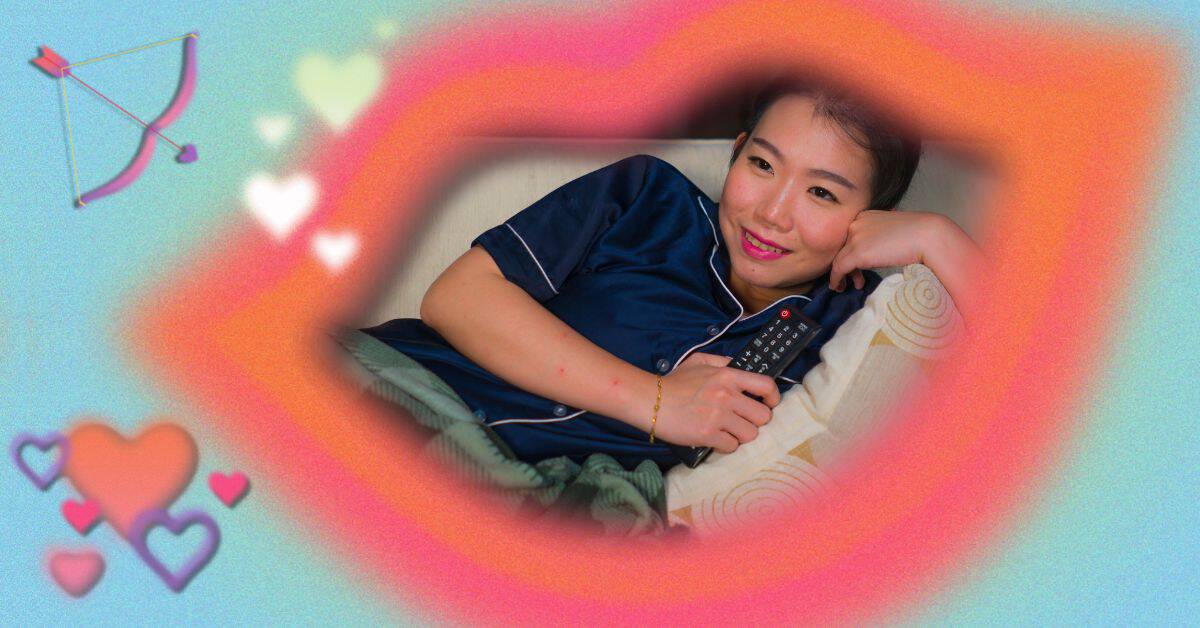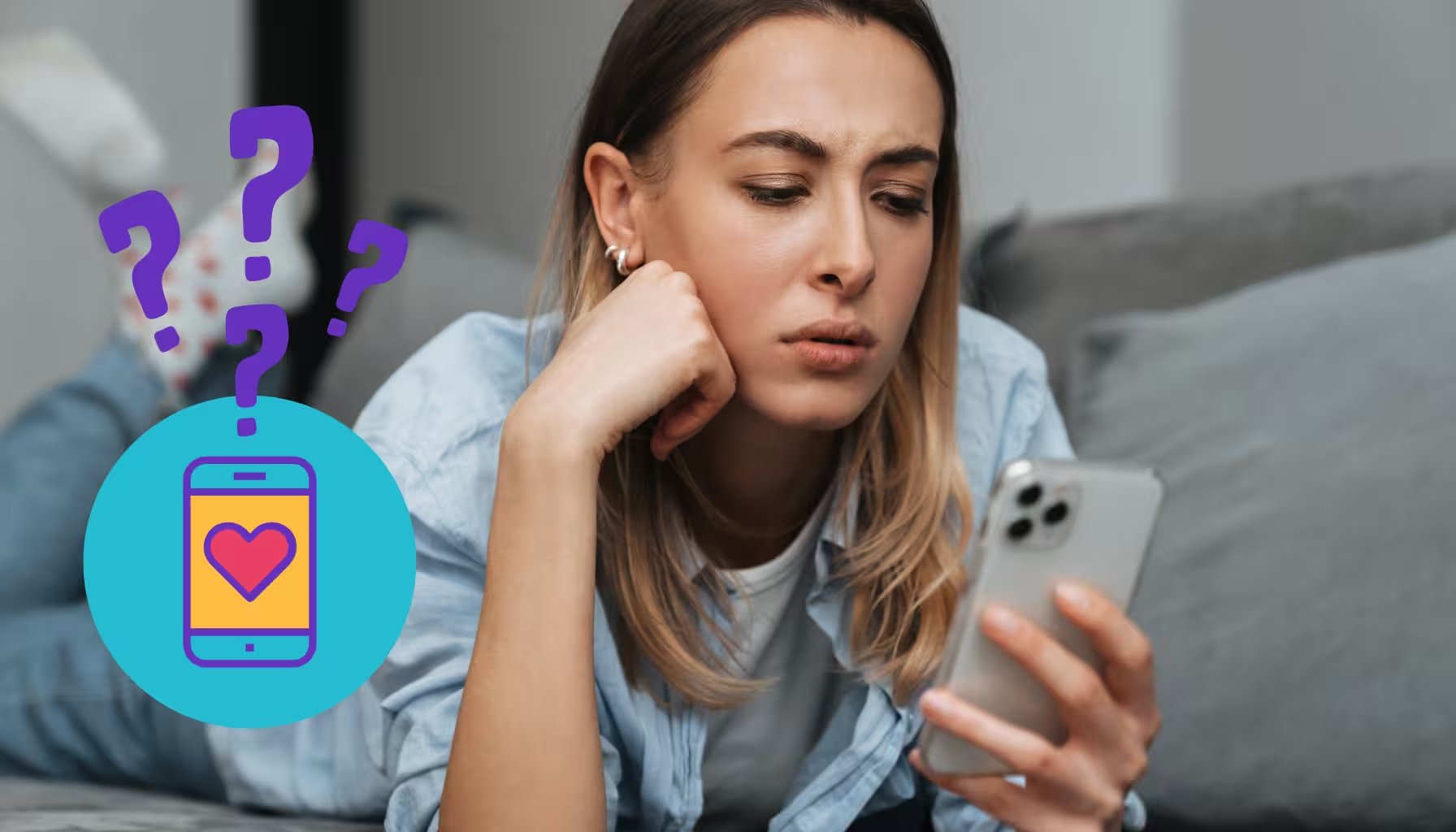If you’re reading this, then you’re probably sitting alone in your pj’s, halfway through a pint of ice cream, crying over a lifetime movie, and wondering why love is so elusive and if you’re going to end up being single forever. Because, of course, if you’re single–and god forbid, you’re in your thirties like me–you’re obviously sad, lonely, and desperate for connection and affection. Right? No!
But of course, popular culture would have you think otherwise because traditional societal expectations expect you to be married with children before you’re thirty. Not only are we not living in the fifties anymore, but it’s possible for women to not want children and still live fulfilling lives.
Research has shown that women’s attitudes toward dating have become more liberal over time, and they’re just as likely to engage in casual flings as men are. Studies have also found that women use dating apps for various reasons. Still, if you want a relationship, man or woman, the struggle of being single is genuine. With online dating, meeting new people has never been easier, but that doesn’t mean dating is easy.
Or being single, for that matter–especially when your friends are getting married or when your mom keeps asking you when she’s getting a grandchild, or when cultural expectations dictate how you should be living your life.
Contrary to popular belief, being single isn’t a death sentence. And how do I know this? Because I’m meant to write this article. At 33, I’ve been a technical legal adult now for fifteen years. During that time, I’ve only had four relationships, three that lasted six or so months and one long-distance fling that lasted a year and a half. I did the math for you, which means I’ve only spent one-fifth of my adult life in a relationship.
So trust me when I say I know the struggles that come with being single. I’m going to explain the everyday pesky situations we singletons find ourselves in and explore how to handle them, but I’m going to do it in the way of Hollywood. Hollywood often portrays single people with various stereotypes and tropes that can be both relatable and problematic.
So let’s break them down and figure out a way to handle those pesky situations that just make you feel like you don’t want to deal with being single anymore. Warning: spoiler alerts ahead!
My Big Fat Greek Wedding: The Pressure to Find ‘The One’
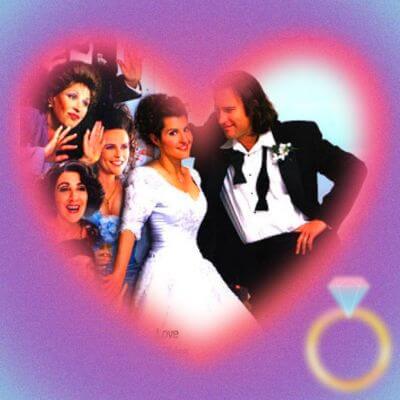
The romantic comedy explores themes of family, identity, and cultural traditions and offers a relatable take on the pressure to find “the one.”
In the film, the protagonist, Toula, is a single Greek-American woman in her 30s who is constantly being pressured by her traditional family to find a husband and settle down. Toula struggles with the expectations placed upon her, but when she ends up falling in love with a non-Greek man, she has to navigate the cultural differences and overcome her family’s objections to the relationship.
The movie was a box office hit and critical darling, quickly becoming one of the most successful independent movies of all time. Why? Because it was relatable. I was young when I first saw it, but now as a single woman in my thirties, I can relate to being the odd one out. While all my friends are getting married, I am not (nor do I have a desire to). Fortunately, my parents are cool and don’t put that pressure on me, but when my gym instructor asks if I’m married and have kids, I can’t help but laugh. Because that’s what’s expected in this society. Not only does My Big Fat Greek Wedding perpetuate the notion that women are unfulfilled until they’re single and have children.
The movie also subverts these stereotypes by portraying Toula as an independent woman who breaks away from her traditional upbringing and pursues her own dreams. She takes control of her life by attending college, working at her family’s restaurant, and eventually starting her own business. She assumes that she’ll make her family happy by finding love but then faces another set of issues when the man she falls for doesn’t fit their expectations.
So what do you do when you’re faced with the pressure to find the one or, more specifically, someone that your family approves of? Like Toula, you take control of your life and choose what is best for you, whether that means staying single, happily frolicking on Tinder or meeting someone on Elite Singles, or getting married–that’s entirely your decision because, after all, it’s your life.
Bridget Jones’s Diary: The Lonely Single

The title character, Bridget, is a quirky and imperfect single woman who is constantly struggling to find love and acceptance. As the only single person in her group of friends, she often feels isolated and left out. She is obsessed with finding a partner and is convinced her weight and appearance are part of the problem.
After sleeping with her boss and thinking she’s making headway in her life, she realizes her boss is a jerk and her job a joke, forcing her to find her own identity by taking control of her life. Despite her insecurities and challenges, Bridget is determined and resilient, and she eventually finds love with a man who accepts her for who she is–only after she accepts herself.
While the movie reinforces some negative stereotypes about single women, it also offers a more nuanced and positive portrayal by showing how happiness only comes from within. It’s corny–but relatable. Anyone who’s been lonely will know the feeling of drowning their sorrows in a bottle of wine. It also pinpoints a struggle that many singletons face: sometimes, on the journey to happiness, we are our biggest enemy, and joy and being single aren’t mutually exclusive.
The 40-Year-Old Virgin: Men and Promiscuity
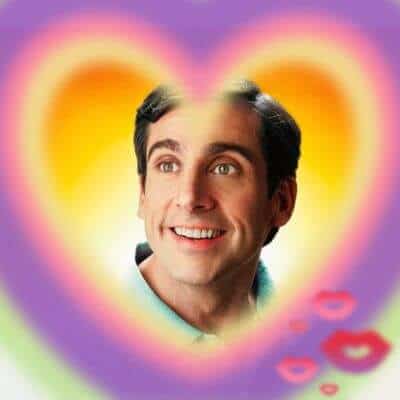
This comedy follows the story of Andy, a middle-aged man who has never had sex and struggles to find love. Andy’s social awkwardness and social anxiety make dating difficult as he struggles to find love and sexual fulfillment.
The movie reinforces the idea that single men who have not had sex are somehow incomplete or inadequate and that finding a sexual partner is the ultimate goal of a man’s life. Andy is an object of ridicule and shame by his friends and co-workers, who see his virginity as a mark of failure. The movie plays off the idea that men only have value if they’re sexual beings, yet Andy is the most relatable person in the film.
It also brings up the idea of double standards as they relate to gender roles. Single women who sleep around are promiscuous, but single men who do the same are fabulous. Similarly, if a man hasn’t lost his virginity, he’s failing, but a woman in the same situation is considered more worthy.
Friends with Benefits: The Hookup

This romantic comedy follows two friends, played by Mila Kunis and Justin Timberlake, who decide to have a sexual relationship with no serious commitments. As their relationship progresses, they develop deeper feelings for each other and are forced to confront the complexities of their situation.
This film came out around the same time as No Strings Attached, a movie that followed the same tropes. Personally, this is one of those movies where it starts out relatable but ends anything but. It assumes that two adults can’t just have a casual relationship and that feelings are doomed to come into the picture.
And while that may be the case for some people, others want only that. Some people aren’t looking for anything more complicated, but films like this perpetuate the notion that you can’t be single and just enjoy a fling–one or both of you must develop feelings. The unbelievable part of both of these movies is that the couples involved end up together when in reality, usually only one person develops feelings or things fizzle out naturally. The chances of finding love in a romantic relationship created from a casual foundation are unlikely. Movies like this perpetuate the idea that if you’re single, you must end up in a relationship, and casual flings aren’t allowed.
How to Lose a Guy in Ten Days: The Crazy Single
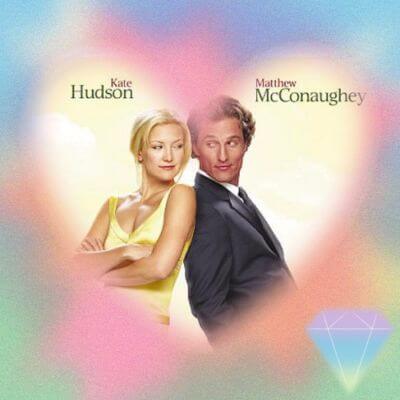
If you haven’t seen this movie, then I highly recommend it. The film follows the story of Andie Anderson, a journalist who works for a women’s magazine. Her editor assigns her to write an article about how to lose a guy in ten days by doing everything that women typically do to drive men away.
Andie accepts the challenge and sets her sights on Benjamin Barry, a successful advertising executive who has bet his boss that he can make any woman fall in love with him within ten days.
Andie and Benjamin meet and begin dating, with Andie doing everything she can to make Benjamin break up with her. Benjamin, meanwhile, is determined to make Andie fall in love with him, so he puts up with all of her antics.
Not only is the movie hilarious, but it’s essentially making fun of stereotypes by depicting the negative qualities a woman may do to drive a man away. After only a week together, Andie becomes clingy and possessive, talks about marriage and babies, and is generally difficult, going out of her way to interject herself into his life. It poses questions about how fast single people should move forward with a new love interest and plays around with the idea that you need to keep a facade of normalcy and not show your ‘crazy cards’ until you’re already in the relationship.
Keep In Mind
These are only a handful of movies that display common stereotypes that depict the struggles we singletons face on a day-to-day basis. Don’t even get me started about the time I told a guy I’d been single for eight years, and his immediate response was, “What’s wrong with you?” The general consensus seems to be that people assume that being single is bad and relationships are what everyone wants. And, of course, I only listed romantic comedies. If I wrote this from the perspective of horror movies and relationships, it’d be a very different story.
